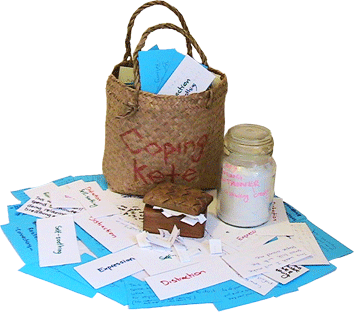For your information from New Zealand Council of Social Services.
‘Transition Times’ #3 forwarded on behalf of Ros Rice, CEO, NZCOSS
Please note you can access NZCOSS Facebook where Ros posts information and commentary almost daily. https://www.facebook.com/pages/New-Zealand-Council-of-Social-Services/148340588547487. There is also a link on the front page of the website.
TRANSITION TIMES
Tracking changes to the NZ Government’s funding and administration of social services in our communities.
(NZCOSS is not offering opinion or critique on the information that we are providing in this mailout.)
PLEASE CIRCULATE THIS TO ALL YOUR MEMBERS
Date: 07.6.2012
BRIEF SUMMARY OF THE GOVERNMENT’S PLANNED WELFARE REFORMS
FIVE MAIN AREAS OF CHANGE
- Changes in structure of benefits
- Introduction of a fiscal liability-based ‘Investment Approach’
- A ‘Youth Package’ – for 16-17 year old youth and 16 -18 year old teen parents on benefit
- Changes affecting parents and sole parents on benefit
- Changes affecting people with long-term illness or disability
CHANGES TO BENEFIT STRUCTURE
Three new main benefits:
- Jobseeker Support – replaces current UB, SB (those who are temporarily unable to work due to illness will have a temporary work-test waiver) and DPB for those with youngest child aged 14+ years
- Sole Parent Support – replaces DPB-Sole Parent for those with youngest child under 14
- Supported Living Payment – replaces IB and DPB-Caring for Sick and Infirm
Also: Youth Payment & Young Parent Payment (see Youth Package)
THE “INVESTMENT APPROACH”
- Significant change to method of measuring performance and accountability for Work and Income’s activities
- Annual (or biannual) actuarial assessment of long-term future liability of current (and future?) beneficiary population (ie, sum of all future benefit costs for current beneficiary population. Current estimate: approximately $45b).
- A primary expectation on MSD/Work and Income will be to reduce the long-term fiscal liability number.
- Amount of assistance provided to a person to be guided by the estimated liability they represent (and therefore the reduction in the long-term fiscal liability estimate if they leave benefit)
- A new Board to oversee this – reports direct to Ministers of Social Development and Finance
- In future, MSD funding may include performance rewards/penalties according to performance against change in LTFL estimate.
THE YOUTH PACKAGE
- Applies (broadly) to 16-17 yr old youth and 16-18 yr old parents (single or couples) not supported by family or parents (ie mainly those previously eligible for the Independent Youth Benefit or Emergency Maintenance Allowance ). Commences in July 2012.
- Intensive ‘wrap-around’ assistance – main focus being to achieve NCEA Level 2, also parenting and budgeting courses and other obligations (and incentives)
- Heavy emphasis on money management – rent and bills paid directly, remainder on payment card for groceries, up to $50 cash as ‘In-hand Allowance
- Services will be provided by contracted providers (private, NGO or Iwi)
- Sanctions: based on recommendation of contracted providers: up to 100% (youth), 50% (young parents)
PARENTS AND SOLE PARENTS ON BENEFIT
- Part-time work test (15 hours) when youngest is 5 yrs; work preparation expectations when youngest is 3 yrs;
- When youngest reaches 14, sole parents move from SPP to JSS with 30 hour work test and (presumably) JSS abatement regime
‘Subsequent child’ policy: if woman has child when on benefit:
- Child’s age is disregarded for work-test obligation once s/he reaches 12 months old
- Applies to couples on benefit as well as sole parents.
- Applies at W&I discretion on ‘underlying principles’ of the policy, and can include wider circumstances if W&I believes a woman is seeking to get around the intention of the policy
Medical costs paid for contraceptive advice and for long-acting contraception for mothers on benefit and for their teenage daughters
DISABILITY AND LONG TERM ILLNESS
- Full details are yet to be announced.
- Work capacity assessment procedures to be introduced
- Presumably to apply to all applicants for the new Supported Living Payment and to all those currently on IB (and possibly some SBs)
Ros Rice, Executive Officer NZCOSS
(With thanks to Michael Fletcher; Senior Lecturer, Institute of Public Policy, AUT University.)







